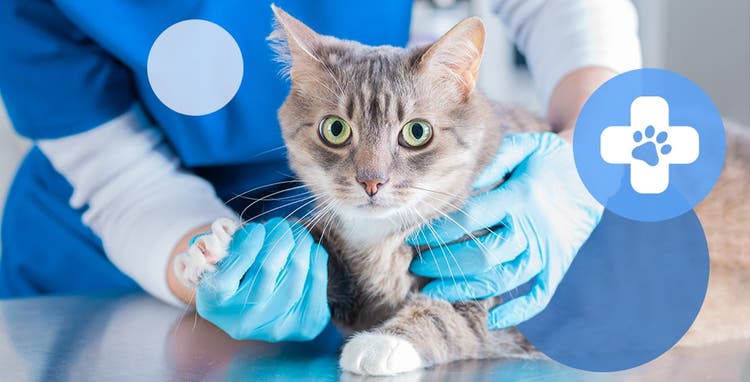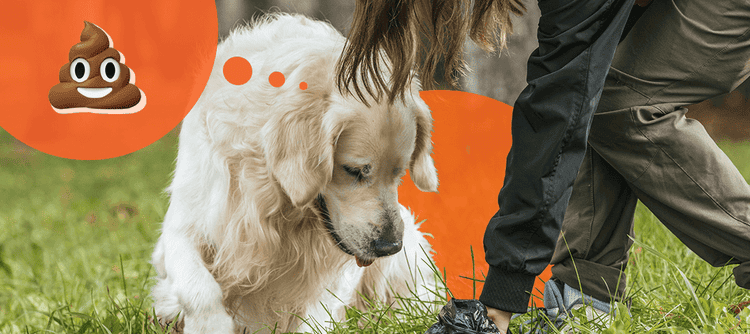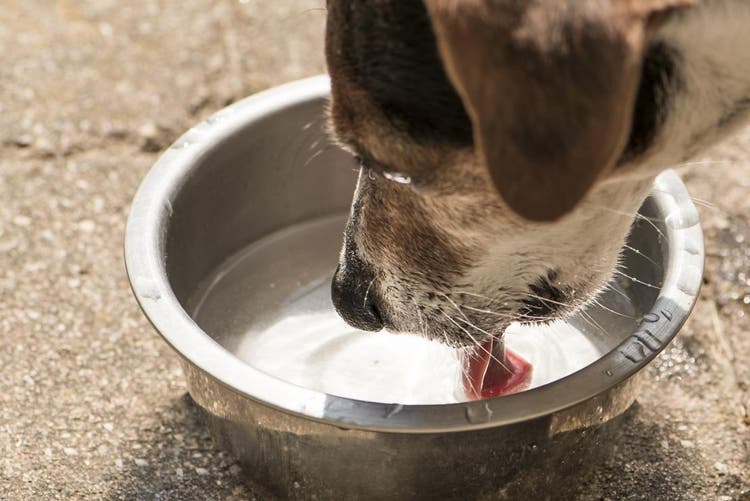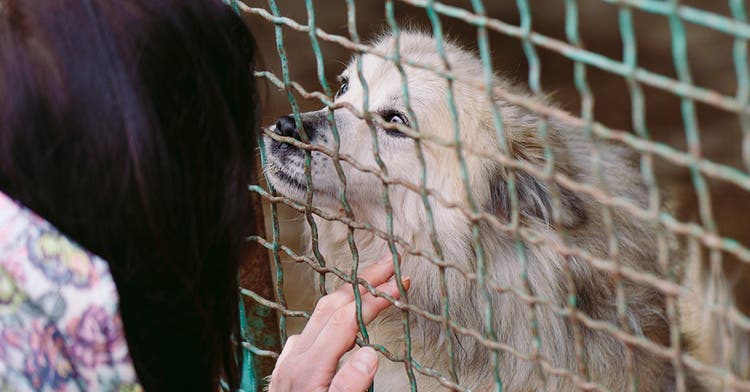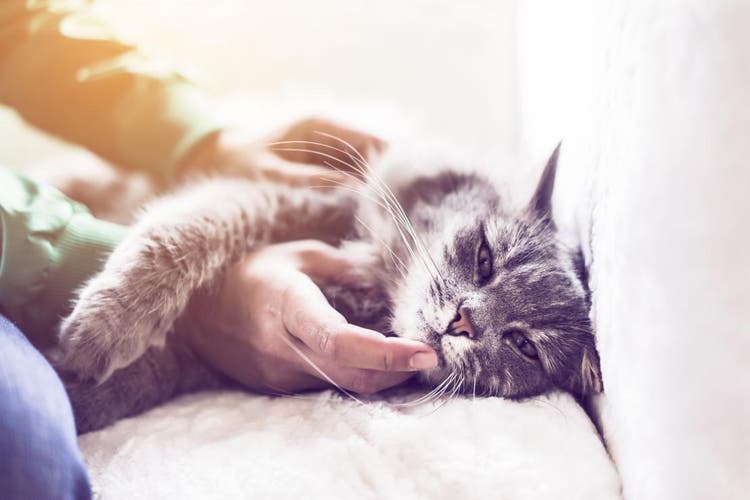How to prevent leptospirosis.
As a pet owner, you want to keep your pets as happy and healthy as possible. This includes staying educated on potential risks and infections, like leptospirosis. Here’s everything you need to know about this potentially dangerous infection.
What is Leptospirosis and What Causes It?
Leptospirosis is a disease that can affect pets and humans. Some people call it “lepto” for short. It is caused by an infection from Leptospira bacteria, which has many strains and can be found worldwide.1
Leptospirosis bacteria is spread through the urine of infected wildlife and can survive in water or soil for months.2 Dogs and cats can get leptospirosis through direct contact with urine from infected wildlife, by drinking, swimming or passing through mud, puddles or bodies of water. Leptospirosis can also be spread through exposure to the feces of infected animals. Once contact is made, the bacteria cross through the mucosal membrane of the skin, or an open wound.3,4
Which Pets May be More at Risk for Leptospirosis?
According to the Centers for Disease Control and Prevention (CDC), while all animals can potentially become infected with leptospirosis, occurrence in pets has been on the rise.2 Dogs are more commonly affected than cats.1
Lepto in Dogs
The infection rate for leptospirosis in dogs has been increasing, with most infections commonly occurring in the fall and in wet environments. Stagnant water frequented by wildlife can increase the risk factor for leptospirosis, as can open sores or wounds on your dog.3 Dogs are more at risk for leptospirosis if they have access to (or they’re drinking water from) puddles, streams, rivers or lakes.
While dogs that live in rural areas, near farms or woods may immediately come to mind, be mindful that dogs in cities could also be at risk — puddles in city and suburban backyards and kennels are frequently exposed to wildlife, too.
What Are the Symptoms of Leptospirosis?
Signs and symptoms of leptospirosis can vary greatly. Some pets have no symptoms. Some pets experience mild symptoms and recover quickly on their own. Other pets have serious symptoms that require treatment. Unfortunately, some pets don’t survive. Here are signs to watch out for:
- Anemia
- Appetite loss
- Breathing difficulties and/or fast breathing (which may be related to the development of lung disease)
- Changes in frequency or amount of urination
- Cough
- Depression
- Dehydration (possibly rapid)
- Diarrhea
- Excess fluid around chest or abdomen
- Gums that look dark red and speckled
- Inflammation of the eyes
- Jaundice (look for yellowing of the skin or around the whites of the eyes)
- Lethargy
- Increased thirst (which may be related to the development of kidney failure)
- Fever (sudden)
- Muscle soreness, tenderness and stiffness
- Reluctance to move
- Runny nose
- Shivering
- Swollen legs
- Vaginal discharge that’s bloody
- Vomiting (could be tinged with blood)
- Weakness1-4
What are the Complications Caused by Leptospirosis?
The biggest concern is that leptospirosis will spread and reproduce. Although your pet may be able to fight off the infection, Leptospira spirochetes can remain in the kidneys, infecting the urine and potentially spreading the bacteria to others. If the infection progresses, it can be fatal.3,4
How Do You Test for Leptospirosis?
You must test for leptospirosis by seeing your vet. Because there are so many varied and nonspecific symptoms that may also be seen with other diseases, your vet will need to perform several tests to make a diagnosis. These may include a physical examination, blood test, urine test, X-ray and ultrasound. If your dog has been exposed to areas that may be contaminated with leptospirosis, be sure to let your vet know.
What Kind of Treatment Is Available for Pets with Leptospirosis?
Leptospirosis is treated with antibiotics. According to the American Veterinary Medical Association (AVMA), when treated early and aggressively, recovery chances are good, but there is still a risk of damage to the kidneys and liver.1
Can a Pet Infected with Leptospirosis Put Other Pets (and Humans) at Risk?
According to both the CDC and AVMA, if your pet is infected, there is a low risk that you or anyone in your household will also get infected. Be sure to give your pet all their antibiotics as prescribed. Additionally, AVMA recommends avoiding contact with your pet’s urine. This may seem self-explanatory, but puppies are known to have accidents! If your dog has an accident in your house, throw on some gloves and clean it up immediately with disinfectant. Wash your hands after you touch your pet — and encourage everyone else in your household to do so as well. Additionally, don’t let your dog urinate in puddles, standing water or generally where people might be.1,2
Is There a Vaccination for Leptospirosis?
Yes, there is a vaccination for leptospirosis! According to the American Animal Hospital Association, annual vaccination for the prevention of leptospirosis is strongly recommended for most dogs in North America. Although you may think of leptospirosis as something that only affects rural dogs, this is no longer the case. Leptospirosis can affect any dog, anywhere, and can affect dogs of any breed, sex or age. If your dog hasn’t been vaccinated for leptospirosis, call your vet.
Resources
- “Leptospirosis” (accessed December 5, 2022). American Veterinary Medical Association. https://www.avma.org/resources/pet-owners/petcare/leptospirosis
- “Leptospirosis,” (June 9, 2015). Centers for Disease Control and Prevention. https://www.cdc.gov/leptospirosis/pets/index.html
- “Leptospirosis in Dogs: What It Is and What You Should Know” (accessed December 5, 2022). PetMD. https://www.petmd.com/dog/conditions/infectious-parasitic/c_multi_leptospirosis
- “Bacterial Infection (Leptospirosis) in Cats” (accessed December 5, 2022). PetMD. https://www.petmd.com/cat/conditions/infectious-parasitic/c_ct_leptospirosis
- “Leptospirosis” (accessed December 5, 2022). American Animal Hospital Association. https://www.aaha.org/aaha-guidelines/2022-aaha-canine-vaccination-guidelines/key-vaccination-considerations-by-antigen/leptospirosis/
